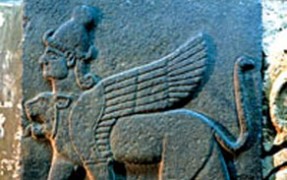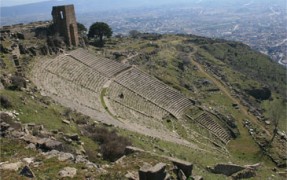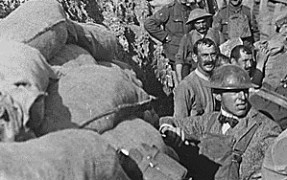Turkey is considered to be one of the richest countries in terms of archaeology and is by far the biggest “open air museum” of the world. It has always been a bridge between the East and West and has been noted by scholars as the “melting pot” of various cultures where classical culture was shaped. From the first known urban city settlement of “Çatalhöyük” to the historically famous Troy and from the Ionians (the Anatolian Greeks) to the greatest empires of the world.
Today, a traveler to Turkey can observe the features of all of these cultures. Not only are they visible in their marvelous remains, but in their impacts on the daily lives of Turks today, which differs greatly from one area to another.

Early Ages
The ancient Bronze Age witnessed the establishment of the first independent city states. At that time, the centre and southeast of Anatolia were inhabited by the indigenous Hattis.

The Legendary Troy
Troy was founded around 3000 BC, and played a major role in the importation of tin, vital for the production of bronze.

The Hittites Arrive
The Hittites arrived combined with the use of the chariot, gave the Hittites a military superiority over Egypt and other Mesopotamian states.

Mitanni Kingdom
It was founded by the Hourrites, a people originally from the South Caspian Sea. The Hourrites exercised considerable influence over the religion of the Hittites, and spread the use of two-wheel chariots and the breeding of horses throughout the Near East.

The Urartian State
The Urartus created a unified state whose territory extended from the Caucasus to Lake Urmiya, with its capital in the present city of Van. The Urartus were masters in hydraulic works and skilled in irrigation, drainage and the construction of canals and artificial lakes.

The Phrygians and King Midas
Their civilisation met its apogee in the second half of the 8th century BC, under the famous King Midas whom, according to the mythology, Apollo ridiculed by having him grow ears of a donkey, and whom Dionysus invested with the power to turn everything he touched into gold.

The Lydians Invent Money- Sardes
The King of Lydia, agreed with the advancing Persians to divide Anatolia along the river Kızılırmak. However the Persians encroach on Lydian territory. They remained the sovereign power in Anatolia until the arrival of Alexander the Great in 333 BC.

Anatolia Changes Hands Again – Pergamon
Pergamon (Bergama) grew at the expense of its neighbours, and snatched part of Phrygia in 241 BC. The kingdom became prodigiously rich, the emporium of Anatolia and a brilliant intellectual centre.

The Era of Eastern Roman Empire
The Roman period of Anatolia began with the death of King Attalus III of Pergamon. In 330, Constantine, the Roman emperor, transferred his capital from Rome to Roman Empire. In 1261, the Byzantines had regained possession of their capital.

World War One
The objective is to keep alive the Turkish nation as a self–respecting and an honourable nation. This aim could be only provided with complete independence. However the self–respect, belief in herself and ability of the Turkish people are very high and immense.

The Visions of Atatürk
To repulse foreign aggressors, to create a new state, to disassociate Turkey from the crumbling Ottoman dynasty, to eradicate an old and decrepit order and to build a modern country dedicated to political, social and economic progress.

A Proud Nation
Turkey is a candidate country negotiating with European Union for being a member of EU. A Turkish government agency; General Secretariat of European Union is responsible for the negotiations.

Seljuk and Ottoman Turks
In the 11th century, under their leader Tugrul, the Seljuk Turks founded the dynasty of great Seljuks reigning in Iran, Iraq and Syria. The Seljuks created a centralised administration organised around the Sultan, his ministers and provincial governors.

Collapse of The Seljuk Sultanate
The Seljuk Sultanate collapsed due to internal dissent and Mongol invasions. Anatolia was again fragmented into rival independent principalities, one of which came under Ottoman rule.

The Ottoman Empire Gains Ground
In 1296, Osman declared himself the independent Sultan. He had encouraged and promoted art, literature, science and commerce. However, the Ottoman Empire lost its momentum, entered a period of stagnation and then gradually a period of decline.
















































